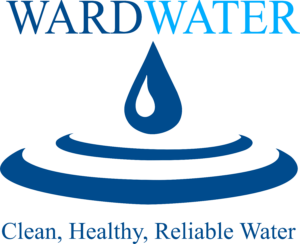Arsenic in Maine water is nothing new or unusual. It’s been in Maine water supplies for as long as wells have existed.
The health risk factors for Arsenic and what they mean to our family’s safety, however, have only been really examined over the last handful of years.
If you have Arsenic in your water, we’ll tell you what your risk factors are and how you can best manage them.
What is Arsenic?
Arsenic is a natural carcinogen found in deposits under the earth’s surface. It’s also used in certain Agricultural and manufacturing practices.
In both scenarios, Arsenic can enter a home’s private drinking water supply.
Why is Arsenic in my Water?
The most common source of drinking water Arsenic is from natural underground Arsenic deposits that release into your well’s underground water supplies. In addition, Man-made Arsenic from industrial uses can enter your drinking water supply through run-off that makes its way into river systems and underground water sources.
Risk Factors from Arsenic in Water | What are they?
As treatment professionals we’ve always found that the safest approach for our customers is to look at each case on an individual basis.
By examining a customer’s overall lifestyle, and not only looking at just how much Arsenic is in someone’s water, allows us to help customers in finding peace of mind when it comes to their water.
Remember, every case is different, and so is each individual lifestyle. What by be considered risky in one home, could be of little concern in another.
TOP 5 ARSENIC RISK FACTORS
1. How much Arsenic is in your water?
Knowing the exact concentration of Arsenic in your water is the starting point for determining how at risk you might be.
The EPA and the State of Maine both consider 10 ug/L (parts per billion) to be the maximum recommended limit for Arsenic in well water. Anything above this represents an unnecessary risk. The higher the parts per billion, the more at risk you become.
2. How much water Arsenic do you consume?
Some families live a very “on the go” lifestyle. The majority of their meals and drinking fluids might come from outside the home sources like restaurants and stores. For people who do very little drinking or cooking from their home’s water, risk factors are lowered.
If on the other hand your family does in fact do a fair amount of drinking & cooking from faucets in your home, you might be much more susceptible to health risks from Arsenic.
3. How long have you been exposed to water Arsenic?
Much like the volume of water you’ve consumed, length of time exposed to Arsenic plays a vital role also. The health effects of Arsenic can be cumulative. The more time goes by while consuming Arsenic, the more the risk factors increase.
4. How healthy are You?
What is your age & current health? Is your family predisposed to any diseases or health concerns? These are questions and factors worth looking at. Generally speaking, the older and less healthy we become, the more our risk factors for Arsenic increase. Young children who’s immune systems have not completely developed also tend to be in a higher risk factor as well.
5. How do you live your life?
It might seem like an odd question to ask, but overall lifestyle might be one of the most important things to consider when determining Arsenic risk factors.
Any one single aspect of the previous 4 risk factors might by themselves be of little concern to you. Put it together with other risk factors and the picture can drastically change.
These 2 scenarios below might help to show you how risk factors could play out together.
Scenario 1: Maybe you are a young, healthy single person who lives by yourself and rarely has company or family come to visit. You do most of your eating and drinking on the go. You also have no awareness of cancers or health issues in your immediate family. You recently tested your water for Arsenic and the results came back at 13 ug/L.
Does this person have elevated risk factors for Arsenic? The facts in this case would most likely give support for lower risk factors.
Scenario 2: Perhaps you are a couple in your late 30s and have two young children. You do quite a bit of cooking and drinking at home. There have been some cases of cancers or illness in both of your immediate families. You recently tested your water for Arsenic and the results came back at 47 ug/L.
If this was your family, how concerned would you be for the presence of Arsenic in your home? Looking at the facts one could assume that this family is at a higher risk factor for Arsenic.
The lesson here is simple. Each person is different, and every household is unique. THERE ARE NO ABSOLUTES. It’s important to weigh out all the aspects of your life. Looking at the big picture is what truly matters most.
Arsenic Poisoning & Toxicity
The established EPA standard for Arsenic in drinking water is 10 ug/L (parts per billion). Ingesting amounts of Arsenic in excess of 10 ug/L represents an elevated risk of experiencing health related effects, both Cancer causing and non-cancer causing.
Some of the adverse health effects to be aware of if you have been receiving your water from a well that has Arsenic:
- Non-Cancer Causing Symptoms:
- Numbness in extremities
- Discoloration and/or thickening of the skin
- Stomach pains including Nausea
- Vomiting and diarrhea
- Partial paralysis and blindness
- Cancers Arsenic has been linked to:
- Prostate
- Kidneys & liver
- Lungs
- Nasal passages
- Skin
For more in-depth information about Arsenic we strongly recommend reviewing the EPA’s Guide to Arsenic in Drinking Water. You can also find valuable information on the State of Maine’s page for Arsenic Drinking Water Standards & Health Risks.
What do I do next?
If you are unsure if Arsenic is present in your family’s water supply we strongly recommend having your water tested. Testing is simple and inexpensive (typically around $20). You can do the test yourself or have a treatment professional perform the test for you.
Feel free to contact us if you have any questions about Arsenic or how to remove it from your water supply. We’re happy to offer any advice we can give you.
Also…
For more information on water testing you might want to take a look at Water Testing in Maine | Why you Need it
Also, feel free to read Arsenic 101 | Is my Water Safe





